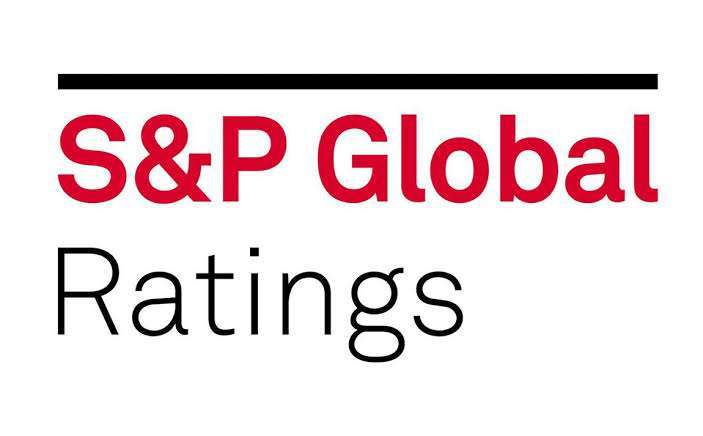Latest News
- Teacher Assaulted By A Colleague
- Burglary Case Reported
- 3 Fuel Theft Cases In Al-Jahra & Hawally
- Municipality Launches Nationwide Campaign To Regulate Advertisin...
- Union Of Petroleum Workers Calls For A May 1 Holiday For The Wor...
- MPW Prepares For Impending Rains With Proactive Measures
- Kuwait Ministry Of Health Unveils 2024 National Anti-Smoking Pro...
- The Kuwait University Council Will Discuss AI Policy Adoption
- The Customs Union Has Halted Sit-in, Waiting For Further Develop...
- Experience Scattered Rain And Thunderstorms AheadI In Kuwait
- The Ministry Simplifies The Payment Process For 'Your Fear Is Th...
- Kuwait Oil Company Explores Renewable Energy And Green Hydrogen...
Jet Fuel Is Among Kuwait's Top Exports To Europe

According to Standard & Poor's Global agency, Northwest Europe's exports of jet fuel averaged between 200,000 barrels and 300,000 barrels per day during the first four months of 2022. Of this amount, about half was imported from the Middle East, specifically from Kuwait, Saudi Arabia, and the UAE. Meanwhile, the other half came from Asia.
'Corona' pandemic embargo measures were eased after easing the demand for jet fuel in the Middle East, reports a local Arabic newspaper. Middle East jet fuel suppliers have been working to raise exports to Europe to take advantage of the high demand for air travel following the embargo.
The agency cited traders as saying it is likely that the West's needs for aviation fuel will increase, due to holidays both domestic and abroad, as well as easing border restrictions in more countries, as fewer travelers will choose to fly.
Because of the travel season, the low stock levels and the lack of local resources, traders said that the recovery in demand for jet fuel in Europe led to an increase in shipments from the Middle East.
European jet fuel supplies are under pressure, but markets east of Suez, such as the Gulf and India, are helping to compensate for that. A Middle Eastern trader told the agency that demand for jet fuel has increased since the spring and summer flight seasons began.
As a result, although jet fuel demand is weaker than diesel demand, if viewed separately, it is still strong, while there is still demand from the European Union and the United States in excess quantities to make up for the shortage.
As a result, regional oil prices are showing signs of demand strength, with monetary differences exceeding $7.6 a barrel for the first time in three months, while their last assessment level was $7.8.
Since Europe is not highly dependent on Russian jet fuel exports, most traders in the Middle East and Europe expect that trade flows will not be impacted even in the event of an oil embargo, and a trader dealing with an oil refinery in the Middle East believes that sanctions against Russia will not have any effect on jet fuel flows.
Europe imported roughly 10,000 barrels of Russian jet fuel per day from January through April, the agency said, noting that the ban on Russian oil will not result in a surge in demand for Middle Eastern jet fuel.
The increase in jet fuel production in the second half of 2022 at large refineries in the region, such as Al-Zour and Jizan refineries, reduces the possibility of a significant effect on supply.
Trending News
-
 Kuwait Airways Introduces Convenient Home Luggage...
15 April 2024
Kuwait Airways Introduces Convenient Home Luggage...
15 April 2024 -
 Expat Residency Law Amended By Kuwait Ministerial...
20 April 2024
Expat Residency Law Amended By Kuwait Ministerial...
20 April 2024 -
 Two Expats Are Arrested For Stealing From Salmiya...
17 April 2024
Two Expats Are Arrested For Stealing From Salmiya...
17 April 2024 -
 Kuwait Airways Resumes Flights To Beirut And Oman...
15 April 2024
Kuwait Airways Resumes Flights To Beirut And Oman...
15 April 2024 -
 Work Permits Will Be Issued For One Year Under The...
27 April 2024
Work Permits Will Be Issued For One Year Under The...
27 April 2024 -
 Temperature Increases Cause Electricity Load Index...
21 April 2024
Temperature Increases Cause Electricity Load Index...
21 April 2024 -
 Ministry Announces Separate Time For Amnesty Seeke...
21 April 2024
Ministry Announces Separate Time For Amnesty Seeke...
21 April 2024 -
 3 Expats Caught In Salmiya With 213 Bottles Of Loc...
23 April 2024
3 Expats Caught In Salmiya With 213 Bottles Of Loc...
23 April 2024 -
 Thief Returns Stolen Money With An Apology Letter...
15 April 2024
Thief Returns Stolen Money With An Apology Letter...
15 April 2024 -
 The Ministry Connects With Violators Of Residency...
23 April 2024
The Ministry Connects With Violators Of Residency...
23 April 2024












Comments Post Comment